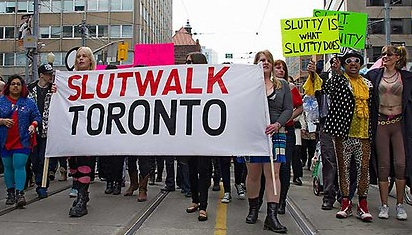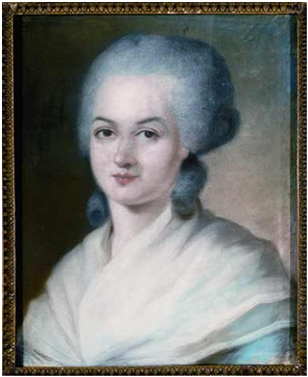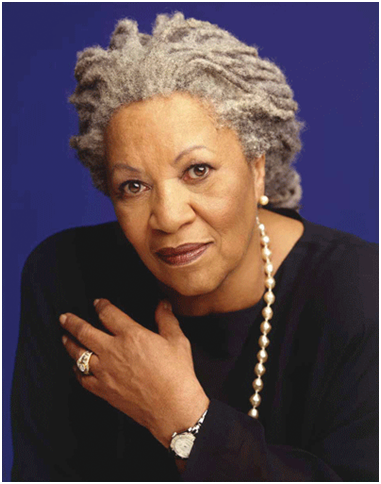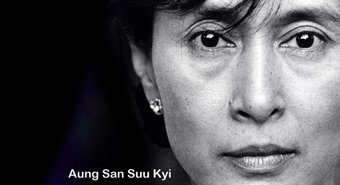Connect with Gloria!
Bring Gloria to Speak
Featured Upcoming Event
Wednesday, Oct. 2-Nov. 13, 2013 Gloria will teach a 6-week online course "9 Practical Leadership Power Tools to Advance Your Career". This is a Take The Lead event in partnership with Arizona State University Online. Participants will receive a certificate to enhance their resumes along with practical skills and understanding of power dynamics in the workplace. Don't miss this opportunity and register today!
More events here.
Buy Gloria’s Latest Book
-
-
-
Accolades

"With heartfelt encouragement ... (including strategies for including men in feminist causes), this guide is accessible to all."
~Publisher's Weekly
 "Female Writers Kicking Up Literary Dust"
"Female Writers Kicking Up Literary Dust"
~Women's e-News"Top 30 Political Mom Bloggers"
~The Stir"Gift Ideas for the Change Agents on Your List"
~Claire Mysko"Feminist Reading List"
~Deep Muck Big Rake"5 Must-Read Books for Women"
~Hello LadiesRead additional Media Buzz here.
-
Recent Posts
Recent Comments
- Gloria Feldt; An Inspiring Woman » CreativeBizHub on She’s Doing It: LisaBeth Weber Pins Pack Message Wallop
- Gloria Feldt on Stuck? Meet Jake and the Power of Letting Go to Move Forward
- Leslie on Stuck? Meet Jake and the Power of Letting Go to Move Forward
- Liz @ Creative Liberty on Sandberg: Are You Bossy or Merely Showing Leadership Skills?
- Gloria Feldt on Sandberg: Are You Bossy or Merely Showing Leadership Skills?
Categories
Listen to My Podcasts

Stacey Gualandi of The Women's Eye interviewed me about--what else--women and power.
Shelley Irwin of NPR asks me why I believe that no one is holding women back but themselves.
Suzanne Braun Levine and I discuss No Excuses on The Fiesty Side of Fifty on Blog Talk Radio.
Nicole Sanders talks to me about No Excuses on her show Radio or Not, on Progressive Talk Radio.
Dennis Lambert of KJZZ's "Morning Edition asks me why I wrote No Excuses.
Talking to Terry Hernon MacDonald about No Excuses over at Single Women Rule.
Discussing No Excuses with Joe Conason on Book Talk Radio.
Talking with Amanda Marcotte on RH Reality Check about women and power.
See Jane Do interview, encouraging women to step into positions of power and leadership – now!
Speaking with MadamaAmbi about No Excuses
Women's Relationship to Power and Leadership
Author Archives: Catherine Engh
Slutwalks and Such: Who’s Making Women’s History Today?
Big thanks and kudos to Catherine Engh for contributing some terrific posts this Women’s History Month. As we end WHM for 2012, here’s one more from Catherine that I know you’ll enjoy, and I hope you’ll think about and take a moment to share your comments. I’ve written a different take on Slutwalk but Catherine has almost persuaded me…
This last year, women around the world made history, protesting victim-blaming online as well as on foot. The Slutwalk movement began after a Toronto police officer told a group of college women that if they hoped to escape sexual assault, they should avoid dressing like “sluts.”
Victim-blaming last year was by no means isolated to this public incident. A young woman who pressed rape charges against two New York City police officers could not be believed, in part, because she was drunk. When an 11-year-old Texas girl was allegedly gang-raped by 19 men, The New York Times ran a story quoting neighbors saying that she habitually wore makeup and dressed in clothes more appropriate for a 20-year-old. The maid who accused Dominique Strauss-Kahn of rape has been discredited for being a liar, and The New York Post claimed she was a prostitute.
The women and men who marched in Slutwalks in more than 70 cities around the world last year were fed up with this kind of symbolic violence. The Slutwalk movement was organized around one central message:
“Black Woman Novelist” -Toni Morrison Defines Her Own Terms
“I’ve just insisted – insisted! – upon being called a black woman novelist…And I decided what that meant, because I have claimed it. As a black and a woman, I have had access to a range of emotions and perceptions that were unavailable to people who were neither.”
It’s Women’s History Month and I can’t resist profiling Toni Morrison, a prolific writer who has worked to represent through fiction the experience of black people—particularly women–in America. Ms. Morrison’s novels focus on marginalized characters struggling to find their place in a society built upon the legacy of slavery and the violence of racial prejudice. Most known for her imaginative fiction, Morrison has also written essays, non-fiction, plays, a libretti, and children’s books.
Ms. Morrison developed her first novel, The Bluest Eye (1970), while raising two children and teaching at Howard University. She later took a job as an editor at Random House, where she played a vital role in bringing black literature into the mainstream, editing books by authors such as Toni Cade Bambara, Angela Davis, and Gayl Jones.
Commercially successful and critically acclaimed, her 1987 Pulitzer Prize winning novel “Beloved” was chosen by a New York Times survey of prominent writers to be the best work of American fiction of the previous 25 years. In “Beloved”, Morrison imagines what it would have felt like to be Margaret Garner, a fugitive slave woman who chose to kill her infant daughter rather than see her grow up in slavery.
In an interview with the Paris Review, Morrison says about Margaret Garner:
Lesser-Known Women Often Make History
Today in the Women’s History Month series, let’s shine a light on lesser known women. 
In the spirit of the month, here are links to articles drawing attention to women you may not have heard of—and the awesome things they are doing today.
- Anna Clark has compiled a list of underrated women writers of novels, stories, poems, and graphic novels from around the globe.
- The BBC has profiled some of the women activists involved in Syria’s uprising.
- Bitch Flicks recommends 11 films about trailblazing women.
- Houston Press lists ten of their favorite Female Artists making music today. Rock on ladies!
Aung San Suu Kyi Says Value Change Over Regime Change
“Regime change can be temporary, but value change is a long-term business. We want the values in our country to be changed.”
As a contemporary figure making women’s history, Daw Aung San Suu Kyi reflects the kind of ‘power-to’ leadership which is truly earth shattering.
“Regime change can be temporary,” she says, “but value change is a long-term business. We want the values in our country to be changed. “
Winner of the Nobel Peace Prize in 1991 Daw Aung San Suu Kyi is the leading pro-democracy opposition leader in Myanmar, formerly known as Burma, one of the world’s most isolated and repressive nations.
Since a military junta grabbed power of the country in 1962, it has secured its power by rigging elections and suppressing opposition. Ms. Aung San Suu Kyi spent 15 of the last 20 years under house arrest after her party, the National League for Democracy, won an overwhelming victory in the 1990 elections but was denied power. In November 2010 elections, Myanmar’s main military-backed party won in a vote again engineered to assure the military’s continued grip on power. The National League of Democracy boycotted this election and called it what it was—undemocratic.
Ms. Aung San Suu Kyi—who was released from house-arrest November of 2010—and her party, the National League for Democracy, have chosen to participate in elections this time around. On April 1 of this year, Suu Kyi and other pro-democratic candidates will run for 47 of the 48 open seats in Parliament.
Her campaign speech, which will appear on National TV, will mark the first time the Nobel Peace laureate has been given the opportunity to use state media to promote her party’s platform. She calls for amending the 2008 constitution,
From Olympe de Gouges to Women Demanding Rights Worldwide
“A woman has the right to mount the scaffold. She must possess equally the right to mount the rostrum [speaker’s platform].”
Olympe de Gouges was an 18th Century French playwright and political activist way ahead of her time, and her feminist and abolitionist writings stirred political discourse in ways that presaged uprisings by women around the world last week.
Disenchanted when equal rights were not extended to women after the outbreak of the French Revolution, Olympe de Gouges wrote a Declaration of the Rights of Woman and the Female Citizen. Modeled on the 1789 Declaration of the Rights of Man and of the Citizen by the National Assembly, De Gouges’ Declaration echoed the same language, replacing ‘Man’ with ‘Woman’.
 De Gouges argued that the rights revolutionaries were attempting to expand for men should be extended to women as well. She passionately insisted upon universal suffrage, legal equality in marriage, women’s right to divorce in cases of abuse and her right to property and custody of her children, among other things. In her postscript, Gouges exhorted women to awaken to consciousness of their rights to embrace their power. She encouraged them to step up, take action and demand equality.
De Gouges argued that the rights revolutionaries were attempting to expand for men should be extended to women as well. She passionately insisted upon universal suffrage, legal equality in marriage, women’s right to divorce in cases of abuse and her right to property and custody of her children, among other things. In her postscript, Gouges exhorted women to awaken to consciousness of their rights to embrace their power. She encouraged them to step up, take action and demand equality.
Loretta Lynn, The Pill, and Family Planning: Happy International Women’s Day!
Just in time to celebrate International Woman’s Day, Catherine Eng contributes this blog post that celebrates a medical solution to family planning that many take for granted and yet remains out of reach 52 years later to millions of women around the world.
Country music legend Loretta Lynn was known for lyrics that bluntly addressed issues in the lives of many women. She believed no topic was off limits, as long as it spoke to other women.
In 1975, Lynn released The Pill, a single considered to be the first song to discuss birth control. The song tells a story of a wife who is upset about her husband getting her pregnant year after year, but is now happy because she can control her own reproductive choices. The song’s frank discussion of birth control was unprecedented at a time when many would have considered contraception a risqué subject matter. Some radio stations refused to play her song on these grounds.
“There’s gonna be some changes made right here on nursery hill…‘cause now I’ve got the pill.”
Be sure to click on the video link below to listen and laugh.
In an interview later in life, Lynn recounted how she had been congratulated after the song’s success by a number of rural physicians, telling her how The Pill had done more to highlight the availability of birth control in isolated, rural areas, than all the literature they’d released.
Fifty-two years after the inception of the pill in America, conservative newscaster Rush Limbaugh felt free to call Sandra Fluke, a Georgetown university student who asked her university to cover hormonal birth-control, a prostitute and a whore. His ignorant comment reminds us that there still exist widespread misconceptions and stigmas surrounding contraception. Let’s take the opportunity on International Women’s day to clear up any misconceptions, to examine the many social benefits of contraception and family planning.
Inspiring Black HERStories
February is Black History Month and March is Women’s History Month. This post by Catherine Engh ties the two together in historical context with links to some amazing but little-known women’s stories. Wow. Feel free to add stories of other such women in the comment section.
And be sure to check back here often as I continue my annual Women’s History Month tradition of highlighting many amazing women—some well known and others not—who have shaped our history. And as you know, No Excuses Power Tool #1 is “Know your history and you can shape the future of your choice.”
Janell Hobson, blogger, social critic and professor of women’s studies, spotlights the lives of various fierce black women throughout history this February on Ms. Magazine’s blog. Hobson’s fascinating posts take as subject black female vocalists, vanguards of the second-wave feminist movement, jazz-age expatriates in Paris, fugitive slaves, civil rights organizers and contemporary environmental justice advocates.
Who knew about Sookie, a slave woman who resisted rape by pushing her master into a soapbox filled with boiling water?






